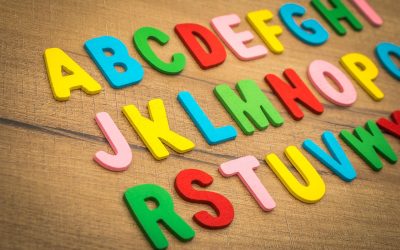Private kindergarten offers a unique experience, but deciding if your child is ready to thrive can feel overwhelming. It’s not just about meeting age requirements. It’s also about evaluating your child’s emotional, social, and academic readiness for this milestone.
In this blog, we’ll guide you through evaluating your child’s readiness, helping you make the best decision for their future.
What Are the Private Kindergarten Age Requirements?
One of many parents’ first questions is, “How old does my child need to be for private kindergarten?”. The general age requirement for private kindergarten aligns with public school standards. Typically the minimum years of age is at 5 years old by a specific cutoff date, often around September 1.
Private schools often have unique policies that can vary greatly by school district and region.
- Age Flexibility: Some private institutions allow children who are 4 turning 5 during the school year to enroll, especially if they demonstrate strong readiness indicators.
- Extended Cut-off Dates: Certain schools may set their cut-off date earlier or later in the year to accommodate parent preferences or broaden admissions.
- Evaluative Factors: Many private kindergartens assess readiness through interviews, observation, or placement tests, placing equal importance on developmental milestones as on age.
Since private kindergarten requirements vary, parents should contact each school to confirm cut-off dates and admission policies.
At The Lighthouse School, we offer flexible part-time and full-time tuition options for kindergarten and transition classes for children turning five years old by September 1st. Our tuition includes breakfast, lunch, an afternoon snack, a late snack, and transportation for school-age children.
How to Assess If Your Child Is Ready
Age alone doesn’t determine if your child is ready for private kindergarten. Readiness depends on physical, emotional, and cognitive milestones that help a child adjust to the structured learning of kindergarten. Here are some key areas to evaluate:
Physical Development
- Fine motor skills, such as gripping a pencil or using scissors.
- Gross motor skills like running, jumping, and maintaining balance.
- Independent self-care capabilities, including dressing themselves and using the restroom.
Emotional and Social Development
- Ability to separate from caregivers without undue stress.
- Cooperative play with peers and sharing toys or materials.
- Ability to express needs and emotions effectively.
Cognitive Development
- Recognizing letters, numbers, shapes, and colors.
- Demonstrating curiosity and a willingness to learn.
- Following multi-step instructions and focusing on tasks for extended periods.
When evaluating these areas, consider your child’s individual growth rather than comparing them to others their age. Every child develops at their own pace, and readiness goes beyond hitting specific benchmarks.
What to Expect in Private Kindergarten
Private kindergarten classes often differ from public programs in terms of curriculum, teaching style, and overall environment. Understanding what these programs involve can provide further insights into whether your child is prepared.
Comprehensive Curriculum
Most private kindergartens combine academic skills, like early math and literacy, with enrichment activities like crafts, music, or art. This curriculum usually leans into individualized or small-group instruction for personalized learning experiences.
Structured Environment
Private kindergartens often have smaller class sizes, providing closer teacher-student interactions. There’s also an emphasis on independent problem-solving, creativity, and critical thinking at an early age.
Readiness Matters
A well-prepared child is more likely to thrive in the structured and dynamic environment private kindergarten offers. Missing certain developmental milestones can make the transition challenging, resulting in frustration or disengagement.
Signs Your Child May Not Be Ready
It’s natural for some children to take longer than others to develop the skills required for kindergarten. Identifying the signs early can help parents explore alternative options. These might include:
- Separation anxiety that doesn’t ease after some time.
- Difficulty following group instructions or maintaining attention.
- Reluctance to engage in play or social interaction with peers.
- Challenges with speech clarity or communication.
- Limited understanding of basic concepts like colors or shapes.
- Immature motor skills compared to their age group.
What to Do if Your Child Isn’t Ready for Kindergarten
If you notice any of these signs, it doesn’t mean that private kindergarten is entirely out of reach. Many schools offer pre-kindergarten programs that provide a different pace and help prepare your child for kindergarten.
Working with pediatricians or child development specialists can give you personalized advice on preparing your child for kindergarten. For additional support, talk with The Lighthouse School counselor today to see how we can help your child thrive!
Determining Kindergarten Readiness
Your child’s success depends on more than just meeting kindergarten-age requirements or reaching every developmental milestone. Kindergarten readiness is a holistic measure that takes into account your child’s unique abilities, personality, and needs.
Remember, this is only the beginning of your child’s educational path. If you’re unsure about readiness, pause, talk to trusted educators, and explore transitional programs if needed. By focusing on your child’s overall well-being, you’ll be setting the foundation for a happy, confident learner.
If you’re still unsure about your child’s readiness, our teachers and staff are here to help. Contact us to learn more about our children’s programs in Willis, Texas.







